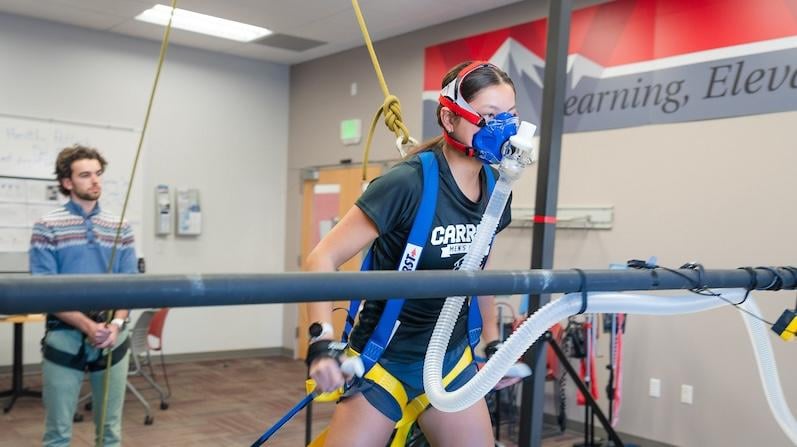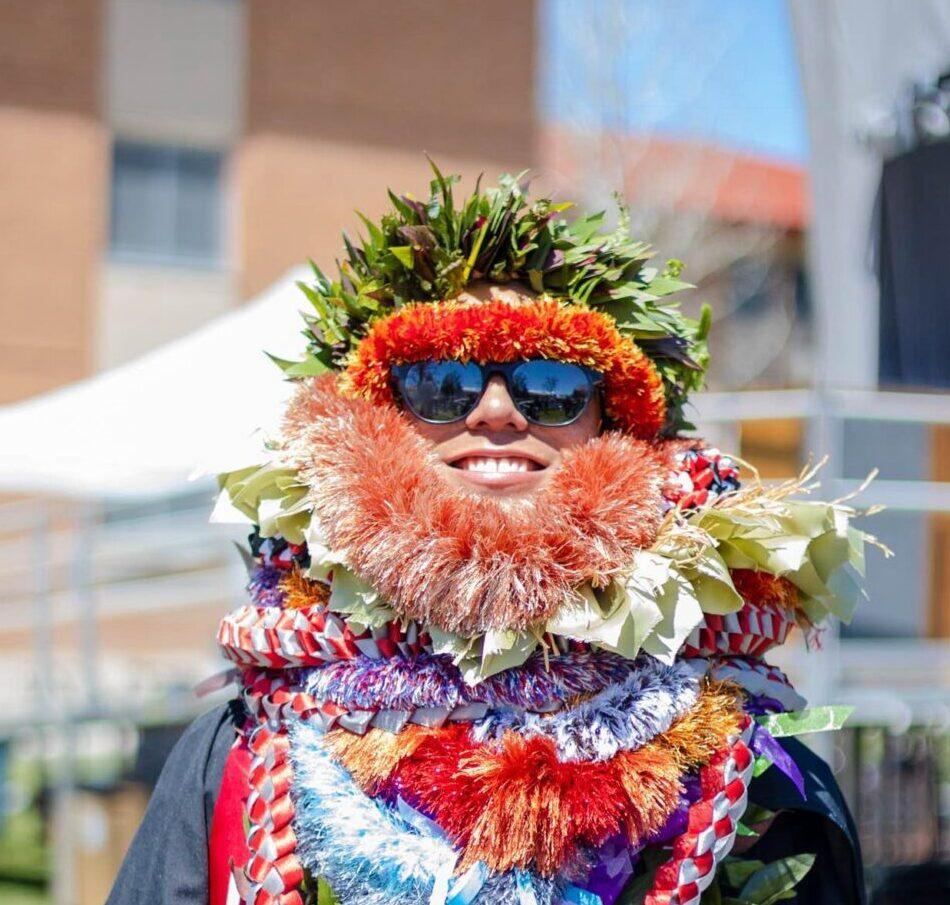Push the boundaries of human performance with Western Colorado University’s Master of Science in Exercise & Sport Science – High Altitude Exercise Physiology (HAEP). Designed for ambitious professionals, this program immerses you in cutting-edge research, hands-on training, and high-altitude environments that challenge and expand your knowledge. Whether you’re aiming for a career in performance coaching, clinical exercise physiology, or research, you’ll gain the expertise needed to excel in a rapidly evolving industry.
Set against the stunning backdrop of Colorado’s Western Slope, our Master’s in Exercise Science program offers unparalleled access to real-world, high-altitude training and research opportunities. Choose from four specialized research pathways—Clinical Exercise Physiology, Human Performance, Cardiovascular Health, or Environmental Exercise Physiology—and dive deep into a thesis project tailored to your interests. Small class sizes, state-of-the-art labs, and dedicated faculty ensure you receive the mentorship and experience necessary to make an impact in the field.
“I joined the M.S. in Exercise and Sport Science program because of the professional development for a growing field encompassing multiple aspects of exercise and physiology. Also, for the fun labs and amazing people!”
–
M.S. in Exercise and Sport Science Graduate
Want to learn more?
For more information about the Master of Science in Exercise and Sport Science, fill out this form!
Top 3 Reasons to Choose the M.S. in Exercise and Sport Science at Western
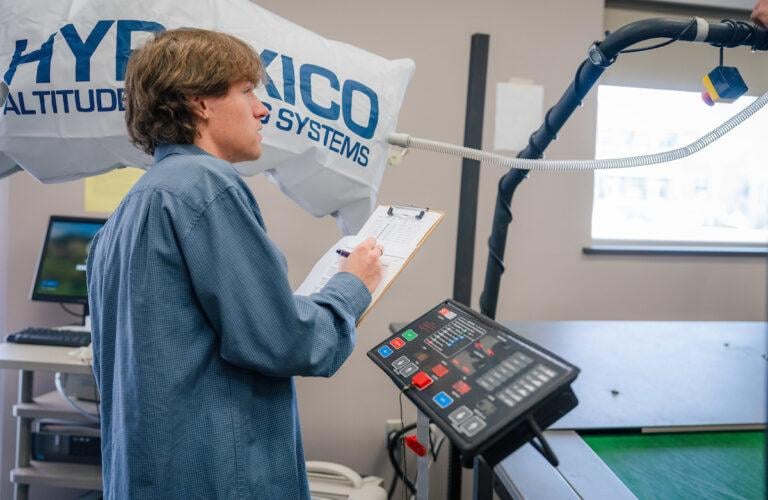
HAP Lab
Work with optimized equipment in Western’s High Altitude Performance Laboratory (HAP Lab), testing and analyzing real-world physiological responses. You’ll have access to VO2 max testing, metabolic analyzers, altitude chambers, and more, preparing you to lead in research and applied exercise science.
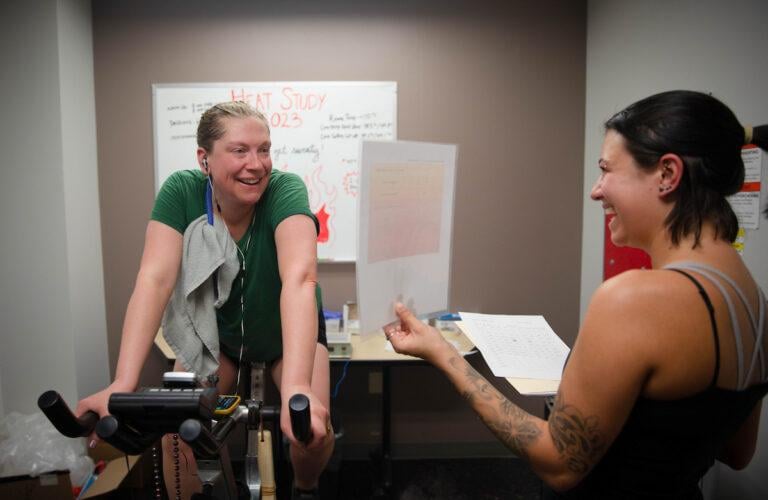
2-Year Completion
Get ahead in your career without putting life on hold. Designed for students to complete in just two years, our exercise science degree balances intensive coursework, hands-on research, and practical experience to fast-track your professional growth.
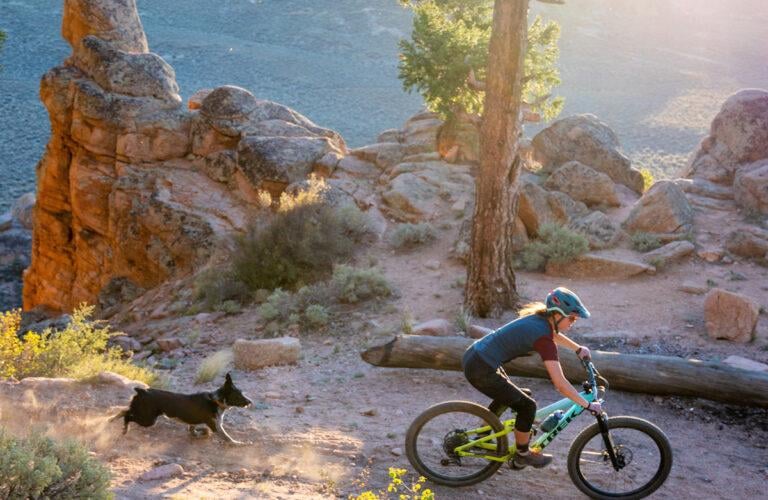
Outdoor & Active Lifestyle in Gunnison
Live, learn, and train in a mountain community that embraces performance, adventure, and well-being. Gunnison, Colorado, is a hub for endurance athletes, researchers, and outdoor professionals, making it the perfect setting to apply what you learn in the field.
What is the Master of Science in Exercise & Sport Science?
Western’s Master of Science in Exercise & Sport Science – High Altitude Exercise Physiology (HAEP) is a cutting-edge graduate program designed to prepare students for careers in human performance, clinical exercise physiology, and research. Rooted in applied science and real-world experience, the program blends rigorous coursework with novel research, offering a unique opportunity to study health and performance in various populations.
This two-year, full-time program provides access to state-of-the-art laboratories, expert faculty mentorship, and industry connections that open doors to elite career pathways. Our program equips you with the knowledge, skills, and hands-on experience needed to excel in your studies of how the human body responds to exercise.
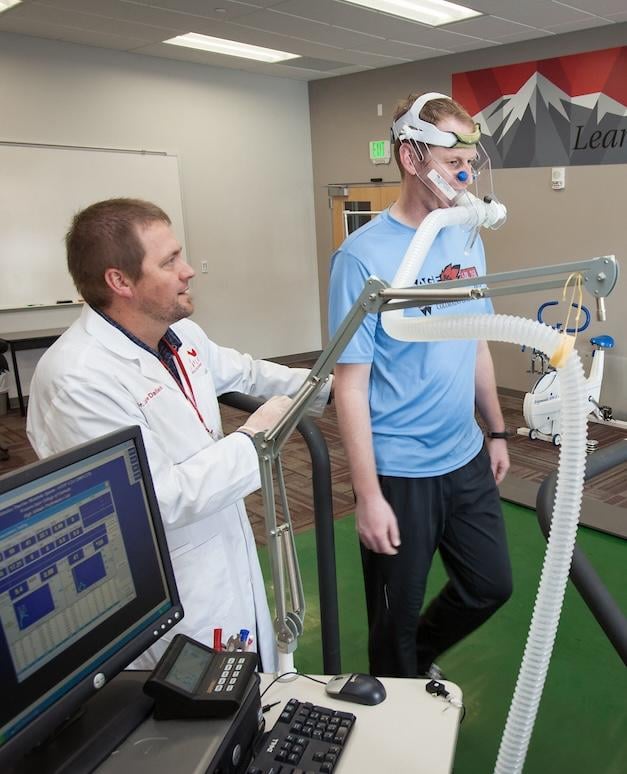
What can I do with a Master’s in Exercise Science?
An M.S. in Exercise & Sport Science opens doors to a wide range of high-impact careers in human performance, clinical health, research, and education. Graduates of our program are prepared to work with athletes, healthcare professionals, outdoor industry leaders, and scientific researchers—applying exercise science to optimize performance, prevent injury, and improve health.
With a specialized focus on applied exercise science and performance, graduates pursue careers such as:
Clinical Exercise Physiologist – Working in hospitals, rehabilitation centers, or wellness programs to help patients manage chronic conditions through exercise.
Strength & Conditioning Coach – Training elite athletes, military personnel, or outdoor professionals to maximize performance.
University Researcher or Ph.D. Student – Conducting cutting-edge research in exercise science and physiology.
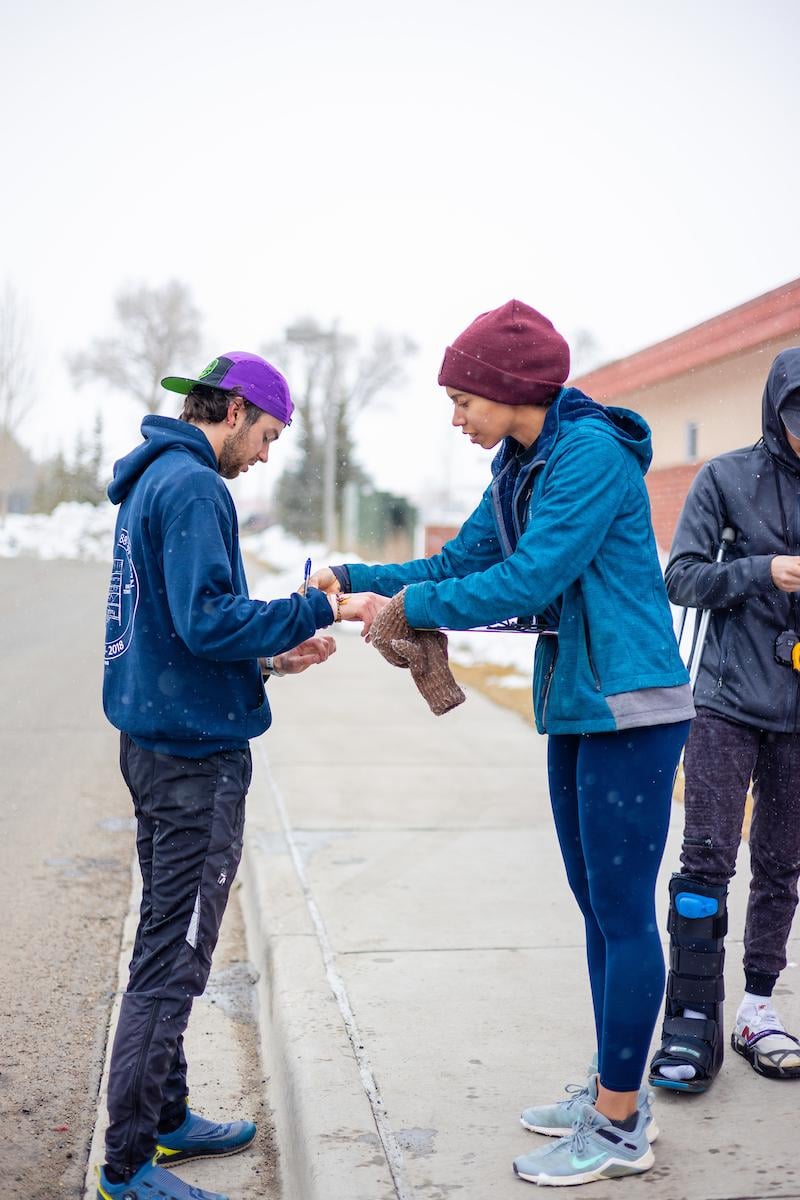
Is a Master’s in Exercise Science worth it?
A Master’s in Exercise Science gives you the expertise and credentials to stand out in a crucial field. With increasing demand for exercise physiologists, strength coaches, and human performance specialists, this degree opens doors to higher-paying and leadership roles that go beyond what a bachelor’s can offer. Students who pursue degrees like a Master’s in Human Performance or an M.S. in Exercise and Sport Science tend to excel as trailblazers within their lines of work.
Beyond career growth, this exercise science degree allows you to make a real impact through a culminating thesis project—whether helping athletes reach peak performance, improving patient rehabilitation, or advancing research in exercise science. If you’re looking to boost your career, increase your earning potential, or prepare for a Ph.D. or medical program, our master’s is a valuable investment.
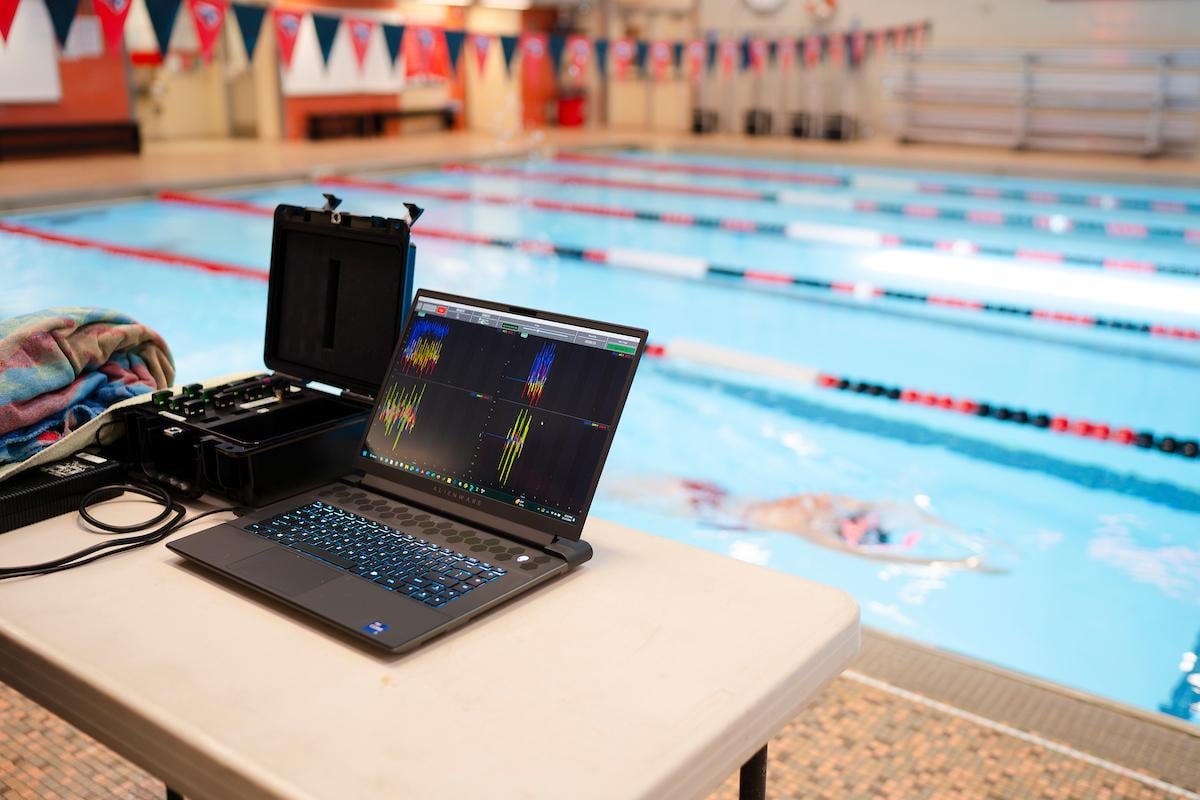
What skills will M.S. in Exercise and Sport Science students gain from the program?
Our immersive and multi-faceted curriculum equips students with the skill sets needed to pursue lifelong careers in physiology, healthcare, training, and more:
- Research & Critical Analysis – Students develop strong research skills, learning to analyze scientific literature, apply the scientific method, and conduct their own studies. They gain expertise in study design, data interpretation, and problem-solving, ensuring they can evaluate and contribute to cutting-edge research in exercise science.
- Professional Communication & Writing – Graduates master oral and written communication, preparing them to present research at conferences, publish in peer-reviewed journals, and effectively convey complex scientific concepts to both academic and professional audiences.
- Applied Science & Technology – With advanced exercise testing equipment and data analysis tools, candidates develop evidence-based exercise prescriptions for various populations, including athletes and those with specialized health needs.
Top 3 Reasons to Choose Western’s School of Graduate Studies
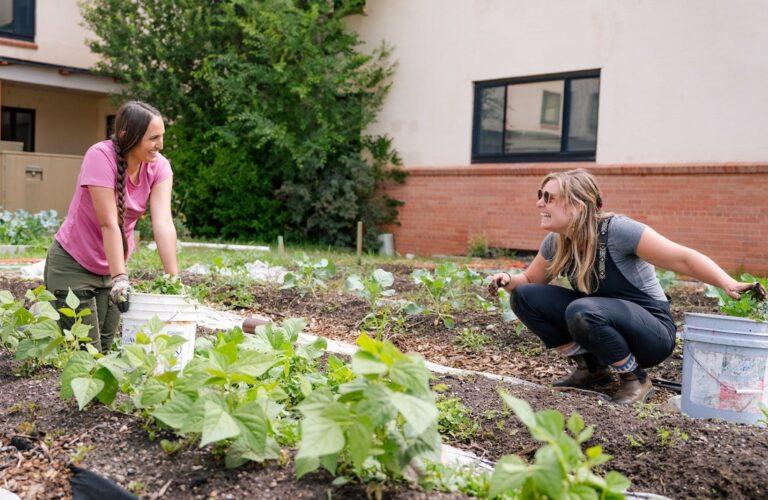
Flexible Learning
With a mix of online programs and immersive in-person curricula, the SGS at Western provides an accessible learning platform for students and working professionals alike.

Small Class Sizes
Western has a 17:1 student-to-professor ratio, making it ideal for students seeking personalized attention and invaluable mentorship from their professors.
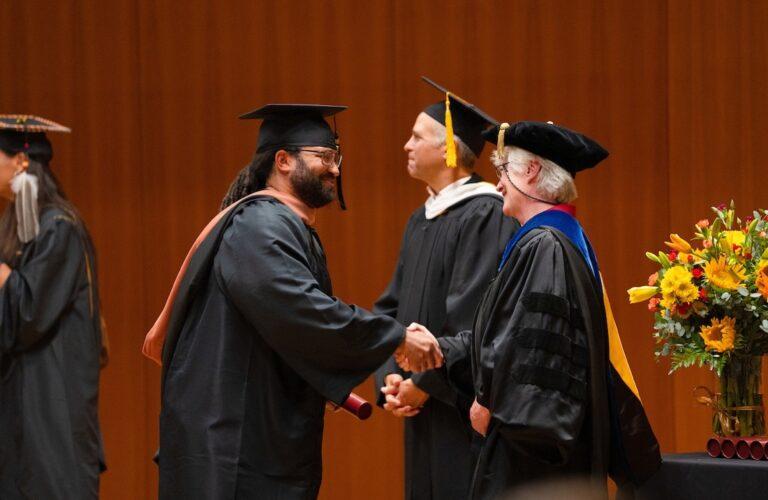
Earn a Graduate Degree
A graduate degree will give you the knowledge and skill sets needed to achieve your career goals and elevate your professional development.

We're here to help!
Still have questions about the M.S. in Exercise and Sport Science and if it’s right for you?
Inquire with our School of Graduate Studies to learn more about the program!
